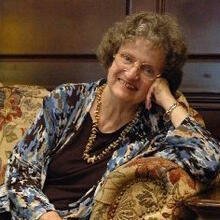Restless in Appalachia
Perhaps I should have known from the title that Robert Morgan’s new novel is about faith. Before I could reflect on the title and try to puzzle out a reference point for it, I was caught up in the story. Morgan is like that. You leaf through a page or two and suddenly the narrative has swept you away. That was my experience with his earlier novel, Gap Creek. In The Rock that same plaintive mountain voice returns.
This time it is the 1920’s, and the chief characters are Muir and Moody Powell and their widowed mother, Ginny. The young menwho are old enough, one supposes, to be moving on with their own livesare working the land to care for their mother.
Robert Morgan uses contrapuntal voices, Muir’s and Ginny’s, to tell the story; and though the angle of vision moves back and forth from mother to son, the story flows relentlessly on. Technique, theme, all such critical and literary considerations are swept aside as the artful mountain storyteller casts his spell.
I had a flicker of Cain and Abel when I realized the brothers were at loggerheads. Muir, who is 17, seems to be his mother’s pet, which makes Moody, who is older, envious. Moreover, Moody seems to be thoroughly cynical and disenchanted about life itself. While his younger brother finds it easy to be loving and good, Moody’s bent is toward wild resentfulness. These boys are locked in combat with each other. They are also struggling against the harshness of their land and its unforgiving rock.
To create a sense of place and people the author sprinkles a light dusting of country dialect. (Muir knowed instead of knew. Folks sung instead of sang.) Yet even readers who hate dialect (I know a few) will respond to Morgan’s deft touch. His country speech soon becomes second nature. And it is quite effective.
Is this book about faith? I think it is really about vocation. Both brothers wrestle with their inner longings. Perhaps Moody has already given up on himself, and his anger flows from thinking that Muir is the golden boy, the one with a charmed life. Muir is also in the grip of a powerful yearning, a drive to be somebody and to do something that counts. When Muir develops a yearningI should say has a mindto preach, Moody encourages him. Though Moody has quit going to church, he slips into the back on his brother’s first preaching day. Despite intense preparation Muir is tongue-tied. His first effort to preach becomes a humiliating public failure.
So much for religion in Muir’s life. What is Muir to do with all his intensity, once he senses he’s not suited for the pulpit? In a series of false starts, Muir casts about for a way to build a life. He tries to become successful as a fur trapper, to leave his mountain home and go elsewhere. Defeated in these efforts, daunted by cities and the strangeness of Midwestern places he does not know, Muir returns to take up the plow. But in all this we see resemblances between the brothers. Muir has some measure of the lawless energy that Moody has. Though he doesn’t understand why Moody is ruining his life with gambling and drink, the brothers share one thing: restlessness of heart.
As the narrative drives forward, a faith-motif becomes visible again. From time to time there are glimpses of Muir as a builder, fascinated with his father’s architecture books and wanting to make something big, something lasting and durable. At last we see that, over the objections of pastor and congregation, Muir wants to build a church.
It is difficult to resist the thought that Ginny may be the reason these two brothers are always at each other’s throats. Time and again, Morgan shows that the brothers’ mutual love and their rivalry are deeply interconnected. Yet he does not analyze, and offers little reflection. There is a mystery at the heart of all human events.
One odd, disturbing episode, in which a circus elephant in the nearby town of Thomasville becomes frightened and kills a man, gives a hint of the soul-depth in Morgan’s tale. I had noticed before, Muir says, that when you see something awful you don’t always understand it at first. And then it hits you like a fist of electricity that hurts your bones down to the soles of your feet. What is so painful about this capture and destruction of an elephant? The fist of electricity in this scene comes partly from the merciless detail in which Morgan recounts every absurd moment of the beast’s struggle for life and his agonizing death. Muir struggles to put a reasonable interpretation on what he sees, but he cannot. Even after the episode is over, he can’t let go of it; he can’t understand why the death of the elephant bothers him so much more than the death of the animals he ordinarily traps and hunts. My daydreams and ambitions were just as big as the elephant, and I was just as trapped. I had tried to turn this way and that way.... [I]t was the panic in the elephant’s eye that I recognized. Its helpless terror stirred and chilled me.
We, who do not live in 1920’s Appalachia, can nevertheless be transfixed by this story. A surge of current strikes us when we follow Muir, Ginny and Moody to their eventual destinies. I must do something right, Muir says. I will not be penned in and hung. In the great curve of centuries I am already dead.
Thank God for poets. And thank God for this one, Robert Morgan, who was raised on North Carolina land settled by his Welsh ancestors. He has something to say to us about life and death. Or maybe his ancestors are saying it through him.
This article also appeared in print, under the headline “Restless in Appalachia,” in the October 15, 2001, issue.








